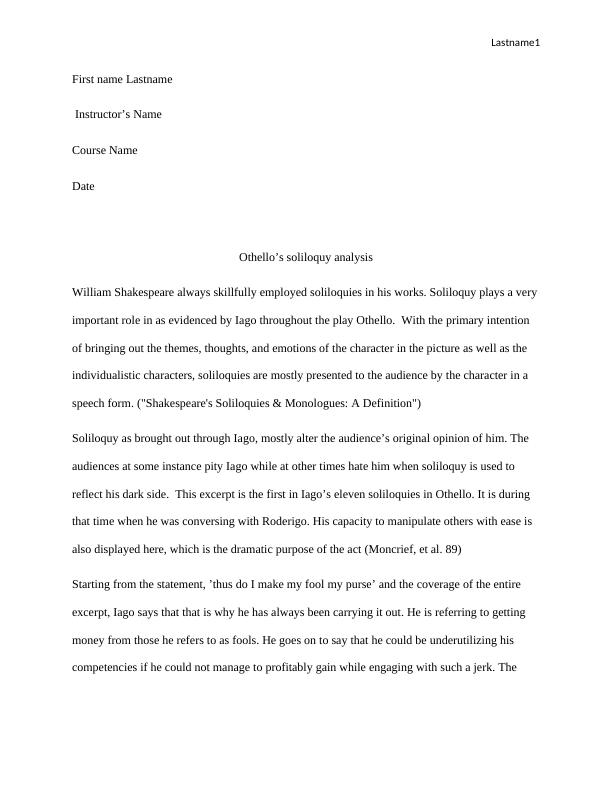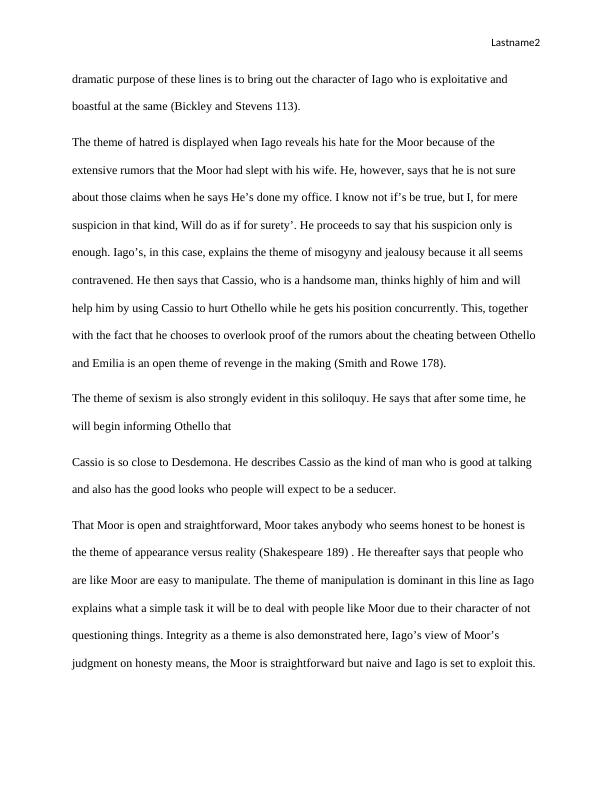Analysis of Iago's Soliloquy in Othello by William Shakespeare
The dramatic purpose of this soliloquy is to address Iago’s manipulate plan to destroy Othello’s life through his relationships.
4 Pages833 Words443 Views
Added on 2023-06-10
About This Document
This article analyzes Iago's soliloquy in Othello, exploring themes of manipulation, revenge, sexism, and appearance versus reality. The soliloquy reveals Iago's exploitative and vengeful character, as well as his plan to manipulate Othello and Cassio to hurt each other. The article also discusses the dramatic purpose of soliloquies in Shakespeare's works.
Analysis of Iago's Soliloquy in Othello by William Shakespeare
The dramatic purpose of this soliloquy is to address Iago’s manipulate plan to destroy Othello’s life through his relationships.
Added on 2023-06-10
ShareRelated Documents
End of preview
Want to access all the pages? Upload your documents or become a member.
Document on Fate and Free Will Othello
|4
|896
|371
Appearance vs Reality in Othello - Essay
|5
|1088
|912
Significance and Dramatic Purpose of Othello’s Soliloquy Case Study 2022
|5
|917
|20
Poetry Discussion: Thanks by Yusef Komunyakaa
|4
|674
|29
Forbidden Love and Arranged Marriages
|4
|744
|80


